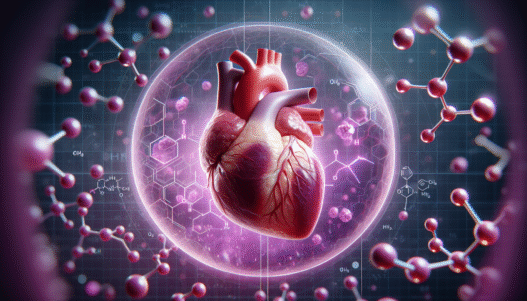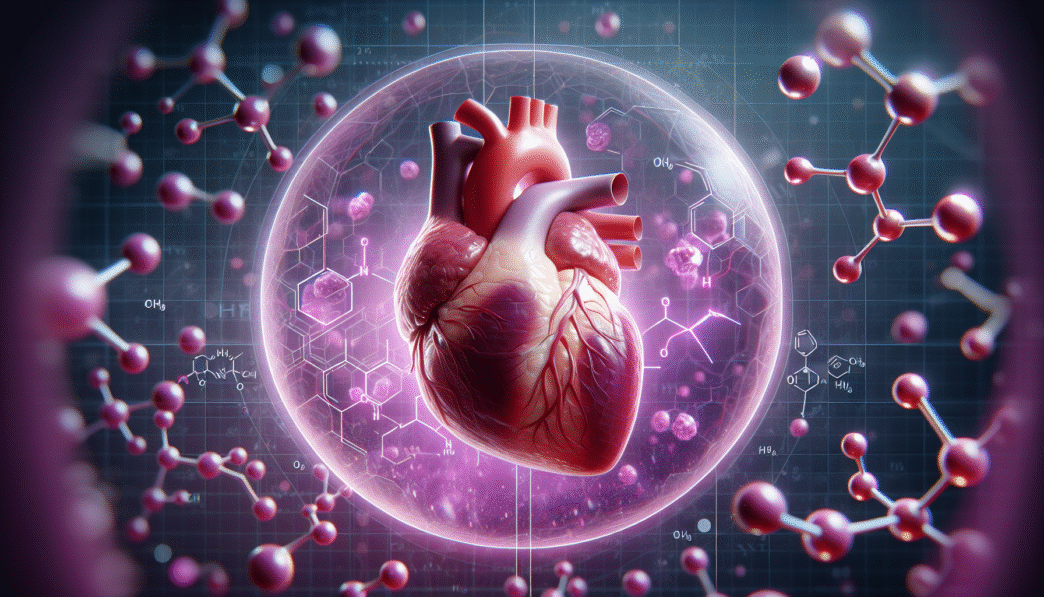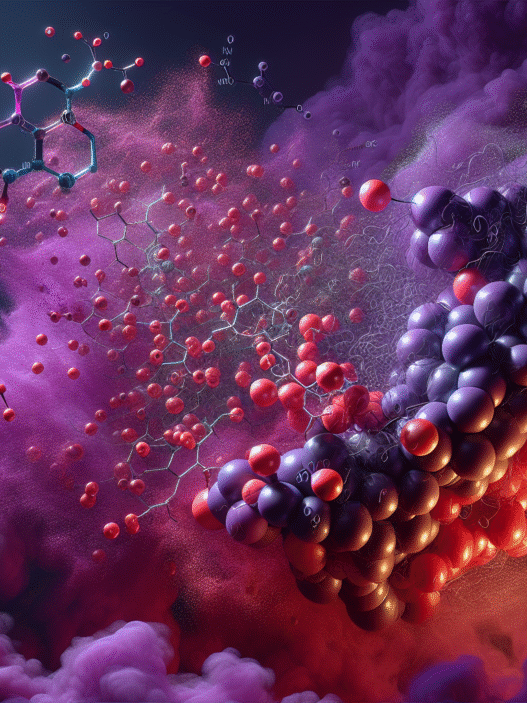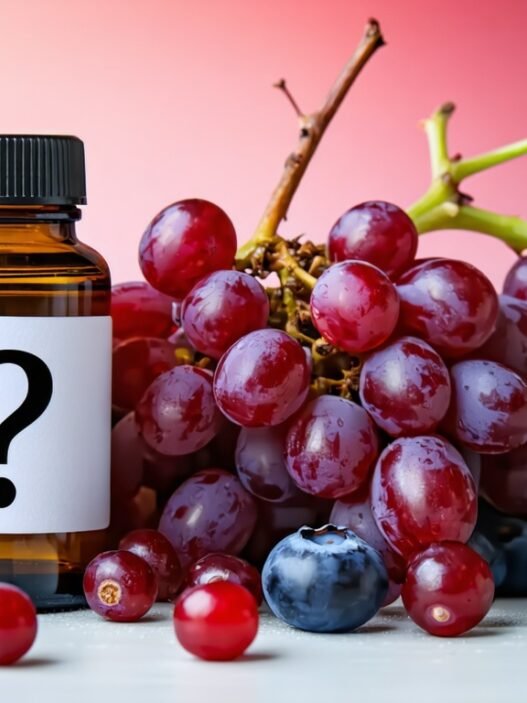Understanding Resveratrol
Introduction to Resveratrol
Resveratrol is a polyphenol, a type of antioxidant that has gained attention for its potential health benefits, particularly in cardiovascular health. It is a natural compound primarily found in the skin of red grapes, and is also present in other sources such as berries, peanuts, and dark chocolate. While it is most commonly associated with red wine, the question remains: is resveratrol bad for the heart?. Some research suggests that resveratrol may help prevent damage to blood vessels, lower LDL cholesterol, and prevent blood clots, which could lower the risk of heart disease. However, results from various studies have been mixed, indicating that further research is needed to fully understand its effects (Mayo Clinic).
Sources of Resveratrol
Resveratrol can be found in a variety of natural foods, with the following table highlighting some of its primary sources:
| Food Item | Resveratrol Content (mg per 100g) |
|---|---|
| Red Wine | 0.2 – 5.8 |
| Grapes (red) | 0.24 – 1.3 |
| Blueberries | 0.1 – 1.67 |
| Peanuts | 0.05 – 0.07 |
| Dark Chocolate | 0.1 – 0.4 |
These foods can be included in a balanced diet to potentially reap the benefits of resveratrol. However, individuals, especially those with certain health conditions, should evaluate their intake of resveratrol. For example, questions arise regarding its impact on the thyroid; individuals curious about this can refer to our article on is resveratrol bad for thyroid?.
In supplement form, resveratrol is available in various dosages. It is suggested that doses exceeding 150 mg per day may provide benefits such as lowering blood pressure, as indicated by several meta-analyses. Individuals considering resveratrol supplements should always consult with healthcare professionals to determine the best approach for their health needs. Additional insights into the association between resveratrol and aging can be explored in our article on does resveratrol reverse aging?.
Resveratrol and Heart Health
Research surrounding resveratrol focuses on its potential benefits for heart health. This polyphenol, commonly found in red wine, may offer several protective effects on cardiovascular health.
Impact on Blood Vessels
Resveratrol is believed to help prevent damage to blood vessels, an essential aspect of maintaining cardiovascular health. Studies have suggested that it may reduce oxidative stress and inflammation, both of which can lead to vascular damage. Additionally, it has been identified as having protective impacts against cardiovascular diseases by blocking atherosclerotic plaque progression (PubMed Central).
| Effect | Description |
|---|---|
| Prevents Damage | Helps protect against oxidative stress in blood vessels. |
| Reduces Inflammation | May alleviate inflammation that impacts vascular health. |
| Block Atherosclerosis | Impedes the progression of plaque buildup in arteries. |
Effects on Cholesterol Levels
Resveratrol has a favorable impact on cholesterol levels. It is known to lower LDL (low-density lipoprotein) cholesterol, often referred to as “bad” cholesterol. This reduction in LDL cholesterol levels is critical, as high levels of LDL can lead to plaque buildup in arteries, a significant risk factor for heart disease. Furthermore, resveratrol decreases the oxidation of LDL cholesterol, thus further minimizing cardiovascular risks (Healthline).
| Cholesterol Impact | Result |
|---|---|
| LDL Reduction | Lowers levels of “bad” LDL cholesterol. |
| Reduces Oxidation | Decreases the oxidation of LDL cholesterol, aiding heart health. |
Prevention of Blood Clots
Another potential benefit of resveratrol is its role in preventing blood clots. It may increase the production of nitric oxide, a compound that helps to relax blood vessels and promote better circulation. This action might contribute to lowering the risk of heart disease, particularly in individuals with high blood pressure.
| Clot Prevention | Effects |
|---|---|
| Increases Nitric Oxide | Promotes better circulation and reduces clot risk. |
| Lowers Blood Pressure | Aids in managing systolic blood pressure and heart health. |
These effects collectively suggest that while resveratrol may not be a definitive answer to heart health questions, it does offer several promising benefits. Continued research is necessary to fully understand its effectiveness and any potential risks. For more insights into the safety and concerns surrounding resveratrol, explore our article on why is resveratrol controversial and who should avoid it?.
Resveratrol and High Blood Pressure
Research indicates that resveratrol, a natural compound found in certain foods, may play a significant role in managing hypertension, providing potential benefits for those concerned about their heart health.
The Role of Resveratrol in Hypertension
In hypertensive animal models, resveratrol has been shown to reduce blood pressure and oxidative stress, leading to improvements in hypertension. This effect may be mediated through mechanisms such as AMPK phosphorylation, SIRT1 activation, increased levels of nitric oxide (NO), and decreased production of reactive oxygen species (ROS).
Clinical evidence supports these findings, demonstrating that resveratrol can improve endothelial function. In trials with overweight hypertensive participants, supplementation with resveratrol led to enhancements in flow-mediated dilation, a critical measure of endothelial health (PMC).
Effects on Blood Pressure Levels
Resveratrol has also shown promising effects on blood pressure levels in humans, particularly among individuals with conditions like obesity or diabetes. Several meta-analyses suggest that the intake of resveratrol can lower both systolic and diastolic blood pressure levels, especially at doses exceeding 150 mg daily. Clinical studies indicate that short-term consumption of resveratrol at doses over 300 mg per day can significantly reduce systolic blood pressure (SBP) (NCBI).
| Resveratrol Dosage | Effect on Blood Pressure |
|---|---|
| Less than 150 mg | Minimal to no effect |
| 150 – 300 mg | Moderate reduction in blood pressure |
| Over 300 mg | Significant reduction in systolic blood pressure |
Research also suggests that resveratrol may help protect against atherosclerosis in individuals at low cardiovascular risk. It appears to reduce the mRNA expression of inflammatory markers, indicating potential as a primary preventive agent against cardiovascular issues (PMC).
As natural health and holistic wellness seekers explore the benefits of resveratrol, understanding its role in managing hypertension could be key for those concerned about overall heart health and blood pressure management. For more insights, check our article on why is resveratrol controversial and who should avoid it? and other resources associated with resveratrol’s health benefits.
Resveratrol Benefits Beyond Heart Health
Anti-Aging Properties
Resveratrol has generated interest in the field of anti-aging. Studies indicate that it may lengthen lifespan in certain animals by activating genes associated with disease protection, much like how calorie restriction can extend lifespans by modulating gene expression. The compound’s ability to influence biological processes can be integral in combatting age-related diseases.
Furthermore, its properties extend beyond mere longevity. Research has shown that resveratrol can improve diastolic function, reduce cardiac fibrosis, and enhance vascular function in animal models of heart failure. However, the effectiveness of resveratrol in improving heart failure in humans remains to be definitively established.
Additionally, resveratrol exhibits antimicrobial activity against various pathogenic microorganisms, including both Gram-positive and Gram-negative bacteria, as well as fungi like Candida species. This suggests that resveratrol may serve as an anti-biofilm agent, offering further health benefits (NCBI).
Cognitive Health Benefits
The cognitive health benefits of resveratrol are noteworthy, particularly concerning its potential protective effects on brain cells. Its antioxidant and anti-inflammatory properties may help in preventing age-related cognitive decline, including conditions such as Alzheimer’s disease. Research indicates that resveratrol could strengthen cognition by mitigating oxidative stress and inflammation in the brain, which are significant contributors to cognitive deterioration.
Understanding the multitude of benefits that resveratrol offers beyond heart health is essential for individuals exploring natural options for wellness and longevity. For more insights into resveratrol’s implications on overall health, check our articles on is resveratrol anti-carcinogenic? and does resveratrol reverse aging?.
Resveratrol Dosage and Safety
Understanding the appropriate dosage and safety considerations for resveratrol is crucial for those interested in its potential health benefits.
Optimal Dosage
Determining the right amount of resveratrol can be complex. While many supplements on the market contain dosages ranging from 250 to 500 milligrams, research suggests that these amounts may be insufficient for achieving significant health benefits. In various studies, effective doses often exceed 2 grams (2,000 milligrams) per day.
| Dosage Category | Dosage (mg) |
|---|---|
| Common Supplement Range | 250 – 500 |
| Research-Recommended Dose | 2,000+ |
Individuals considering resveratrol should consult healthcare professionals to tailor the dosage based on their health needs and conditions.
Safety Considerations
Resveratrol supplements come with several safety considerations. Current recommendations advise against their use for anti-aging or disease prevention until more reliable research is conducted. This is particularly important for children, pregnant women, and breastfeeding mothers, who should avoid resveratrol due to insufficient safety data.
Some potential side effects could include gastrointestinal issues, allergic reactions, or interactions with medications. For those already taking medications, it is essential to discuss the potential risks with a healthcare provider.
For more information on who should avoid resveratrol, check our article on why is resveratrol controversial and who should avoid it?. Furthermore, individuals curious about the implications of resveratrol on specific health conditions, such as the thyroid, can refer to our piece on is resveratrol bad for thyroid?.
Resveratrol Research and Future Potential
Promising Research Findings
Resveratrol has attracted significant attention in scientific research due to its wide range of beneficial biological properties. Studies have shown that it possesses antioxidant, anti-inflammatory, cardioprotective, anti-aging, and anti-diabetic effects, making it a promising candidate for preventing and treating various diseases (NCBI).
Observational studies indicate that dietary patterns rich in resveratrol could lead to a significant reduction in all-cause mortality and improvement in cardiovascular disease risk factors. Specifically, findings suggest that resveratrol consumption leads to decreases in fasting blood glucose, triglycerides (TGs), and heart rate. However, some studies have also reported null results or even harmful health effects, highlighting the inconsistency in findings among different populations (PubMed Central).
| Study Type | Findings |
|---|---|
| Observational Studies | Reduced all-cause mortality and improved cardiovascular risk factors |
| Experimental Studies | Antioxidant and anti-inflammatory effects, protective against oxidative stress |
Areas for Further Study
While the current data regarding resveratrol is promising, more research is needed to clarify its effects and potential applications. Continued investigation into the following areas could enhance understanding:
-
Mechanisms of Action: Research is needed to fully elucidate how resveratrol interacts with various biological pathways, including its effects on inflammation and oxidative stress.
-
Long-term Effects: Future studies should focus on the long-term implications of resveratrol consumption, both beneficial and adverse, to determine its safety profile and efficacy.
-
Population Variability: Given the inconsistent findings across different studies, more research is essential to understand how demographic and lifestyle factors influence the effects of resveratrol.
-
Combination Therapies: Exploring the conjunction of resveratrol with other supplements, such as CoQ10, as discussed in our article on can I take CoQ10 and resveratrol together? may yield insight into synergistic benefits.
Furthermore, investigations into its protective effects against various cancers, including colorectal and breast cancer, signal promising future applications in oncology (PubMed Central). Enhanced knowledge about the anti-carcinogenic potential of resveratrol can further establish its role in cancer prevention and treatment (is resveratrol anti-carcinogenic?).
Resveratrol continues to be a subject of considerable interest within the natural health and holistic wellness communities. As research advances, understanding how it fits into broader wellness frameworks will be vital for its adoption and positive incorporation into health regimens.





















